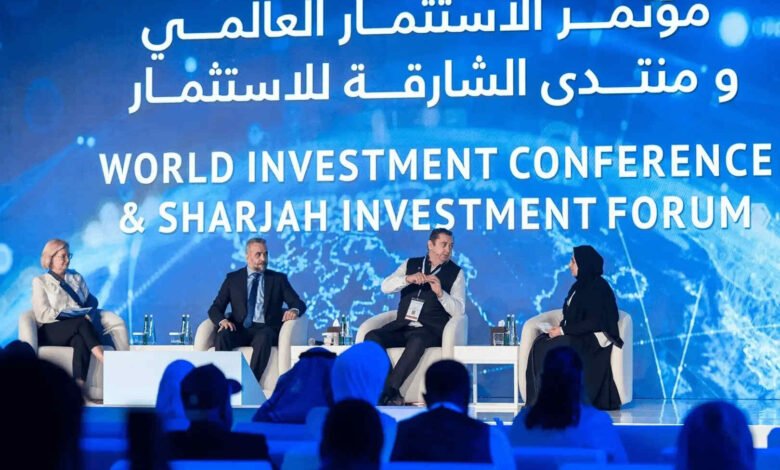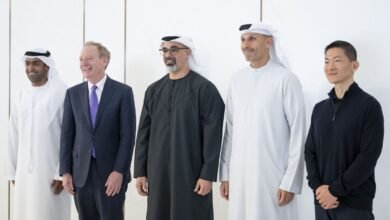UAE’s Industry 4.0 Boom Fuels Manufacturing Growth

▼ Summary
– The UAE’s manufacturing sector grew 7.7% in Q1 2025, contributing 13.4% to non-oil GDP due to rapid Industry 4.0 adoption.
– The National Strategy for Industry 4.0 and Operation 300bn are transforming UAE industry through technology integration, policy alignment, and workforce development.
– Siemens has implemented over 250 energy-efficiency and digital-factory projects in the Middle East, making predictive maintenance standard in advanced UAE facilities.
– The UAE’s industrial strategy and infrastructure are attracting high-value manufacturing investments, exemplified by Regal Assets’ innovative marble-processing plant.
– Success in Industry 4.0 requires equal investment in people and technology, with the UAE serving as a model for combining these elements to future-proof economies.
The United Arab Emirates is witnessing a remarkable expansion in its manufacturing sector, driven by the strategic implementation of Industry 4.0 technologies. The nation’s manufacturing sector grew by an impressive 7.7 percent in the first quarter of 2025, contributing a substantial 13.4 percent to the non-oil GDP. This surge is largely credited to the country’s focused digital transformation initiatives, which are reshaping its industrial capabilities and global standing.
During a key session at the Sharjah Investment Forum – World Investment Conference (WIC-SIF 2025), industry leaders explored how the UAE’s push toward smart manufacturing is altering international production paradigms. The discussion, titled “Transforming Industries Through Smart Manufacturing,” brought together experts from industrial, investment, and technology fields to examine the impact of artificial intelligence, robotics, the Internet of Things (IoT), and sophisticated data analytics on productivity, sustainability, and competitive advantage.
Courtney Fingar, a senior advisor with the World Association of Investment Promotion Agencies (WAIPA), moderated the panel. Participants included Fuad Al-Attar, Siemens AG’s senior vice president for the Middle East; Sergei Millian, Chief Executive Officer of Regal Assets Group Holding Ltd; and Eng Yasmin Al Enazi, who serves as executive director of IXO Hub and CEO of Industry 4.0 at Maxbyte Technologies.
Fuad Al Attar detailed Siemens’ instrumental role in the region’s industrial evolution, pointing out that the company has completed more than 250 projects focused on energy efficiency and digital factories across the Middle East. He remarked that avoiding even a minute of production downtime leads directly to tangible productivity improvements. Predictive maintenance, he noted, has moved from a futuristic idea to a routine practice in the UAE’s most advanced industrial sites. While acknowledging ongoing issues like cybersecurity threats and the need for employee retraining, Al Attar views these as openings for creative solutions. He suggested that governments can speed up industrial modernization by establishing programs where large firms share their proof-of-concept trials, outcomes, and insights. The ultimate objective is building interconnected, predictive, and eco-friendly production networks where data drives faster and more informed decision-making.
Providing a national viewpoint, Eng Yasmin Al Enazi outlined how the UAE’s National Strategy for Industry 4.0 and Operation 300bn are overhauling the industrial framework by merging technology, aligning policies, and cultivating human talent. She stressed that diagnostic evaluations help create customized transformation plans so every factory can keep pace with technological advances. The strong first-quarter growth figure for manufacturing underscores how advanced production methods are emerging as a powerful economic force. Al Enazi also emphasized that developing skilled personnel is essential for lasting industrial achievement. She highlighted a growing integration network linking the UAE with Egypt, Turkey, Malaysia, and GCC nations, encouraging collaborative research and development, technology sharing, and innovation projects.
From an investment standpoint, Sergei Millian explained to the WIC-SIF 2025 attendees how the UAE’s industrial policy, superior logistics networks, and transparent regulations are drawing in high-value manufacturing ventures. He shared that his company, traditionally focused on finance and real estate, was motivated by the UAE’s dynamic industrial climate to branch into manufacturing. The infrastructure, regulatory certainty, and operational effectiveness in the UAE are unmatched, according to Millian. He cited Regal Assets’ new marble-processing facility as a standout example of technological innovation, where they produce marble panels as slim as one to five millimeters. These panels preserve the aesthetic of natural stone while being lighter, more environmentally sound, and simpler to ship, demonstrating Industry 4.0 principles in a real-world setting.
Wrapping up the session, Courtney Fingar considered the broader consequences of the UAE’s industrial digitization. She observed that the countries which will thrive in the Industry 4.0 era are those investing equally in their human capital and their technological infrastructure. The UAE serves as a compelling example of how a government can successfully merge advanced technology, skilled workforce development, and investor trust to build an economy prepared for the future.
(Source: Economy Middle East)


